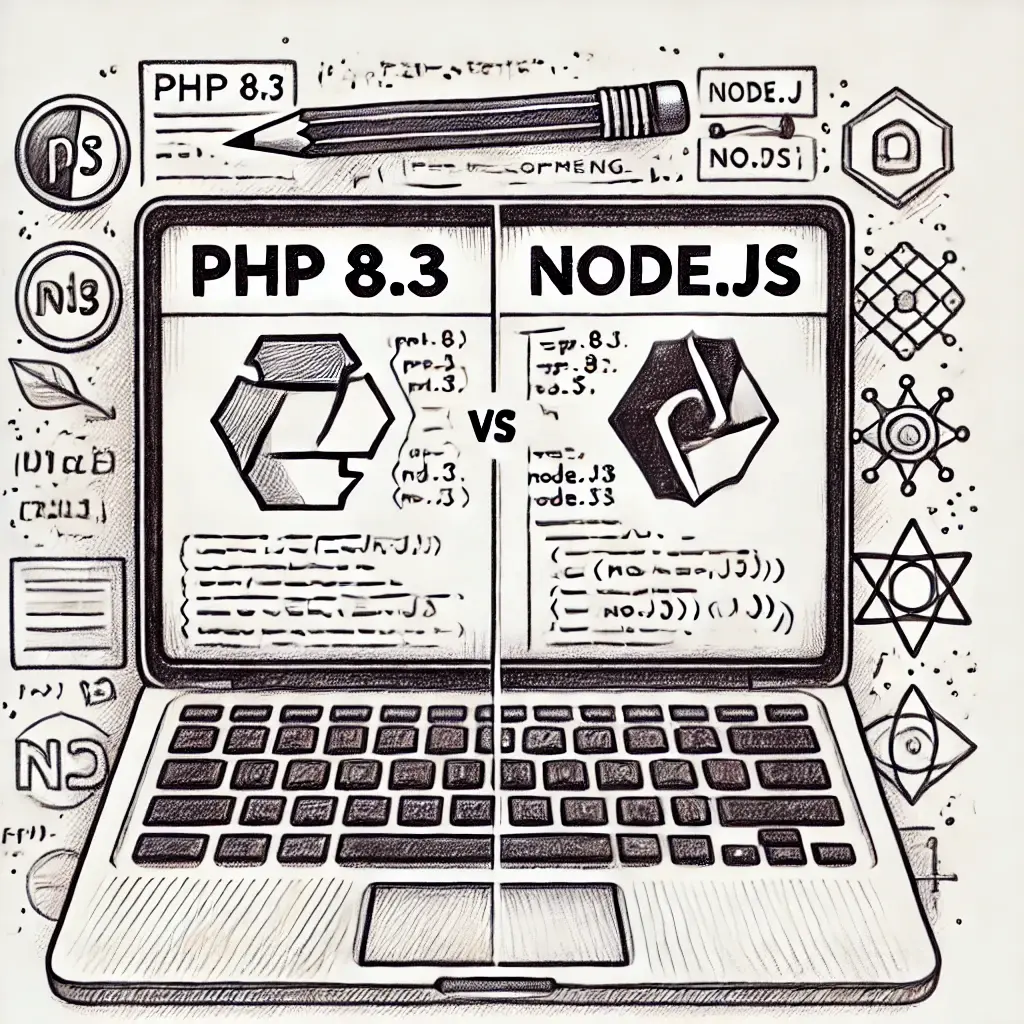In the ever-evolving world of web development, choosing the right technology stack is crucial. Two of the most popular backend technologies, PHP 8.3 and Node.js, offer robust solutions but cater to different needs and preferences. This blog post delves into the key differences between PHP 8.3 and Node.js, helping you make an informed decision for your next project.
Performance and Speed
PHP 8.3: PHP 8.3 has introduced significant performance improvements over its predecessors. With features like JIT (Just-In-Time) compilation, PHP 8.3 offers faster execution of code, making it a formidable choice for web applications that require rapid response times.
Node.js: Node.js is built on the V8 JavaScript engine, known for its high performance. It excels in handling concurrent connections efficiently, making it ideal for real-time applications like chat apps and online gaming.
Scalability
PHP 8.3: PHP traditionally scales well vertically by upgrading server resources. While horizontal scaling is possible, it often requires additional tools and frameworks like Redis or Memcached to manage sessions and cache.
Node.js: Node.js is designed with scalability in mind. Its non-blocking, event-driven architecture allows it to handle a large number of simultaneous connections with ease. This makes Node.js a great choice for applications that expect high traffic and need to scale horizontally.
Ease of Use
PHP 8.3: PHP has been a staple in web development for decades, known for its simplicity and ease of use. With a vast array of frameworks like Laravel, Symfony, and CodeIgniter, PHP 8.3 provides developers with powerful tools to build robust web applications quickly.
Node.js: Node.js requires knowledge of JavaScript, which many developers are already familiar with due to its use in frontend development. The learning curve can be steep for those new to asynchronous programming, but frameworks like Express.js can simplify the development process.
Ecosystem and Libraries
PHP 8.3: PHP boasts a mature ecosystem with a rich repository of libraries and frameworks. Composer, PHP’s dependency manager, makes it easy to integrate third-party libraries into projects, enhancing functionality and speeding up development.
Node.js: Node.js has a vibrant ecosystem with npm (Node Package Manager) being one of the largest package registries in the world. The availability of numerous modules allows developers to extend the capabilities of their applications effortlessly.
Community Support
PHP 8.3: PHP has a long-standing, active community with extensive documentation and numerous tutorials available online. This support network makes it easier for developers to find solutions to common problems and stay updated with the latest trends.
Node.js: Node.js also has a strong, growing community. The collaborative environment encourages sharing of knowledge and best practices, helping developers to learn and adapt quickly.
Conclusion
Both PHP 8.3 and Node.js have their strengths and are suited for different types of projects. PHP 8.3 is ideal for traditional web applications that require rapid development and robust support. On the other hand, Node.js is perfect for real-time applications and projects that demand high scalability.
Ultimately, the choice between PHP 8.3 and Node.js will depend on your specific project requirements, your team’s expertise, and your long-term goals. By understanding the unique advantages of each, you can make an informed decision that best supports your web development needs in 2024.

